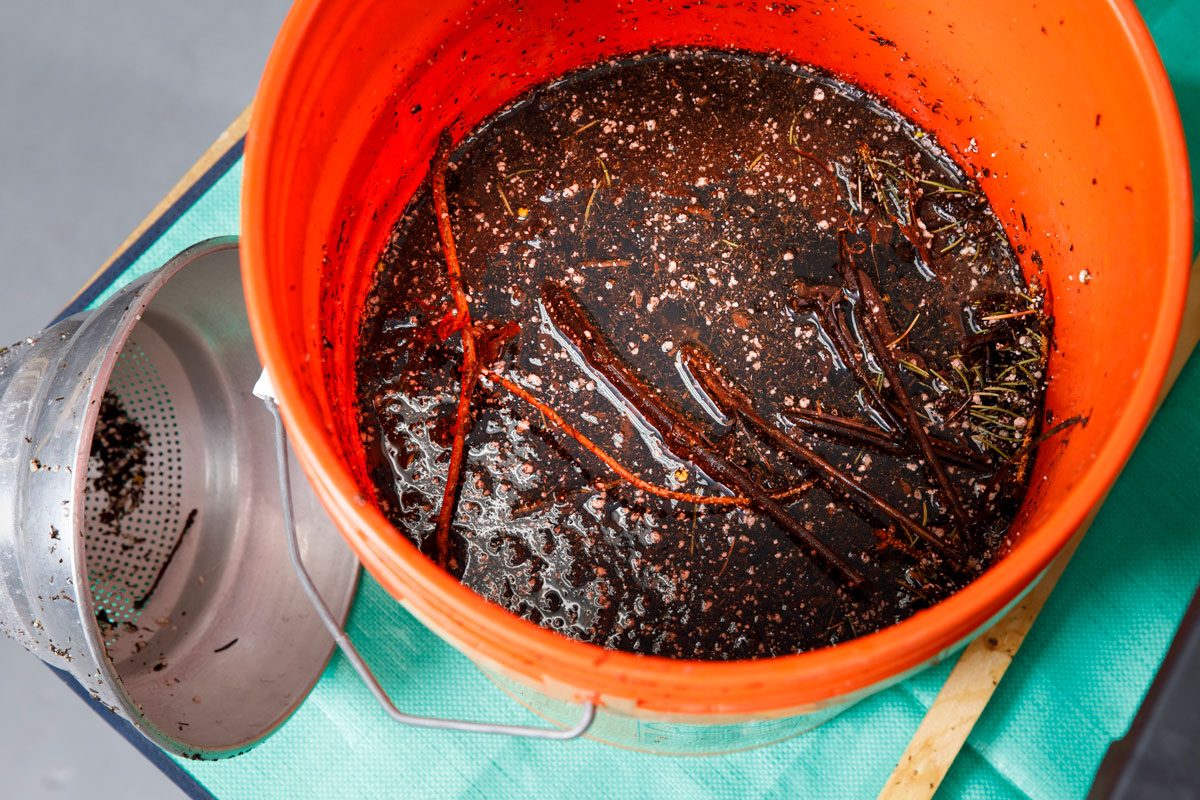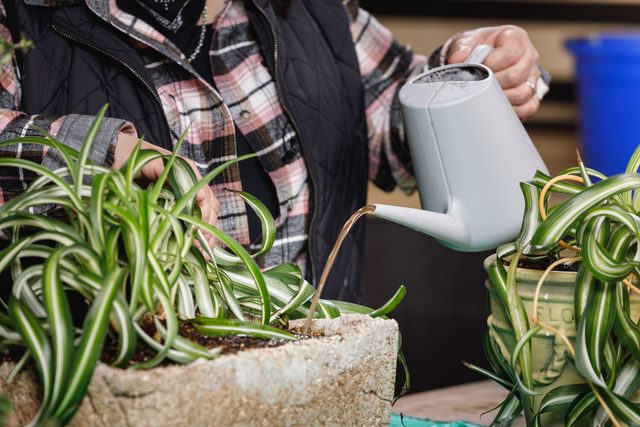Here's how to make compost tea for healthier, more productive plants.
Two days
Beginner
$10 - $60
Introduction
Turn ordinary compost into extraordinary plant food by following these simple instructions for making compost tea that your plants will love.
For thousands of years, humans have turned to tea for its beneficial health properties. Come to find out, compost tea is a wonderful way to give your plants a powerful boost in a very similar way. Think of compost tea as a nutrient tea for your plants. It is exactly as it sounds – a tea made by soaking your compost in water, straining it and watering your plants.
If you know anything about making tea, it is all about soaking or “steeping” the tea leaves to extract the nutrients and infuse the water with their nutrients and health benefits. This exact concept applies to compost tea for your plants. Compost tea can be beneficial to all your plants, seedlings, flowering, fruit-bearing and vegetables.
Compost tea will give better water retention to your soil and improve soil structure. Compost tea is known to increase seed germination, plant growth and increase the production of flowers, fruits and vegetables. In addition to making plants big and beautiful, compost tea can prevent root and crown rot, wilting disease and help keep insects and garden pests away. I am always amazed at how my plants perked up within hours of giving them a good soaking with my compost tea.
When you see how easy it is and the results it creates in your garden, you will want to do it again and again! I share the steps to making your green thumb even greener!
Tools Required
- 2 - large buckets
- Gardening Gloves
- Stir stick
- Strainer or screen mesh
- Watering can
Materials Required
- Compost
- Water/Rainwater
Project step-by-step (5)
Fill a bucket with water
Grab a large bucket that will allow you plenty of extra space to stir and mix the contents without making a mess. Fill it with three gallons of water. You may use rainwater or, if using regular tap water, let it sit for at least 24 hours to allow the chlorine to leech off before mixing it into your compost. (Chlorine is not good for your plants.)

Add compost and stir well
Add a half gallon of compost to the three gallons of water. You don’t want to make mud; you want the compost to float freely in your water. Think of it like a big tea mug with loose tea leaves. Use a stick to stir your compost tea mix vigorously to aerate the tea. Allow it to steep for 12 to 24 hours.
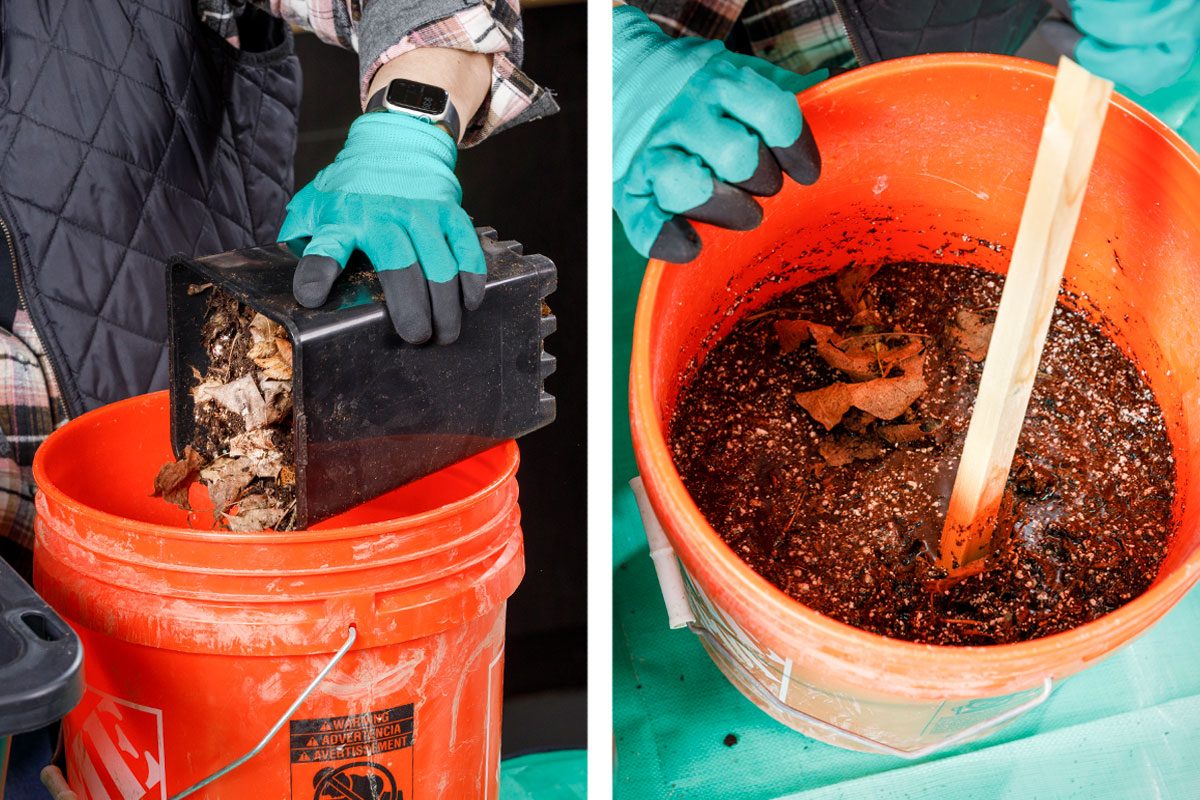
Strain the compost particles
In a second large bucket, strain the compost particles from the water with a strainer or mesh screen, leaving the brown “compost tea” water free of compost debris.
Leaving behind large chunks of leaves or compost may promote mold growth in the plants you apply compost tea to. The key is to apply the nutrient-rich tea without any particles.
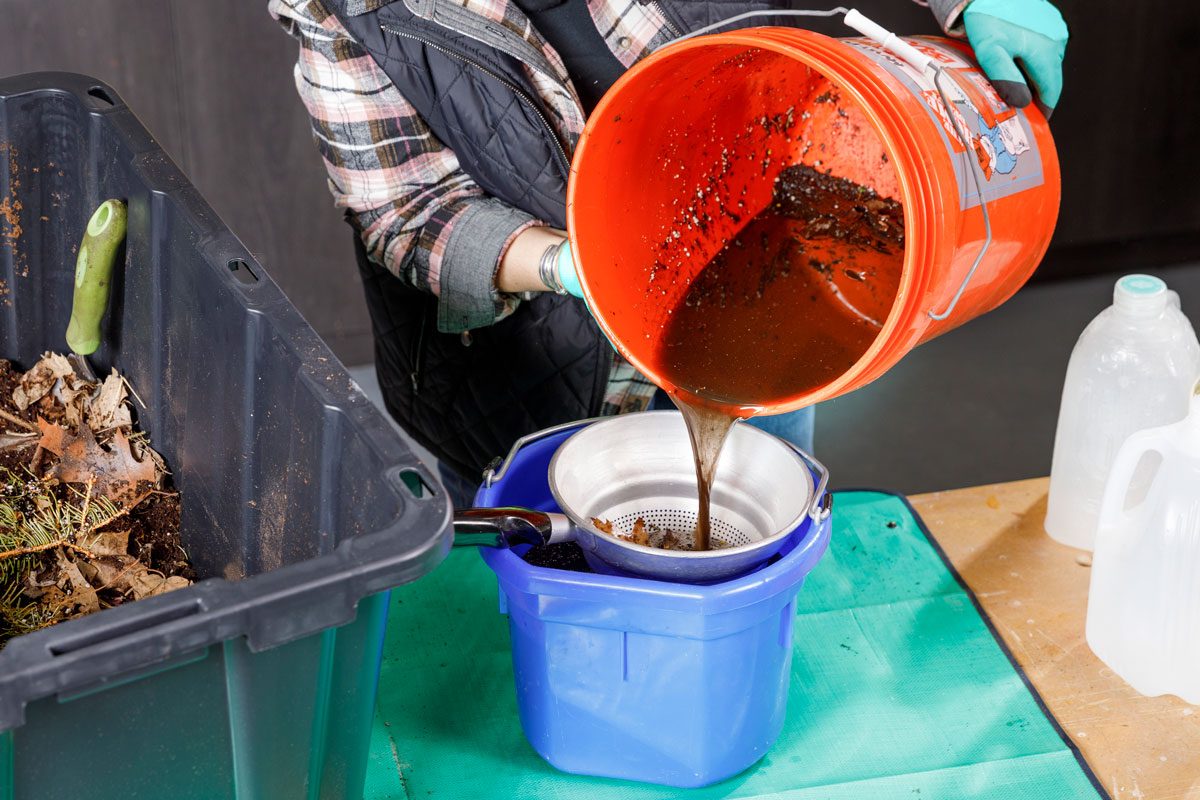
Apply the compost tea to your plants
Water your plants generously with compost tea, just like you would with regular water. Make sure they have good drainage to prevent them from floating when they are overwatered. Good drainage allows excess water to escape and prevents root rot.
Compost tea is good to use on both indoor and outdoor plants.
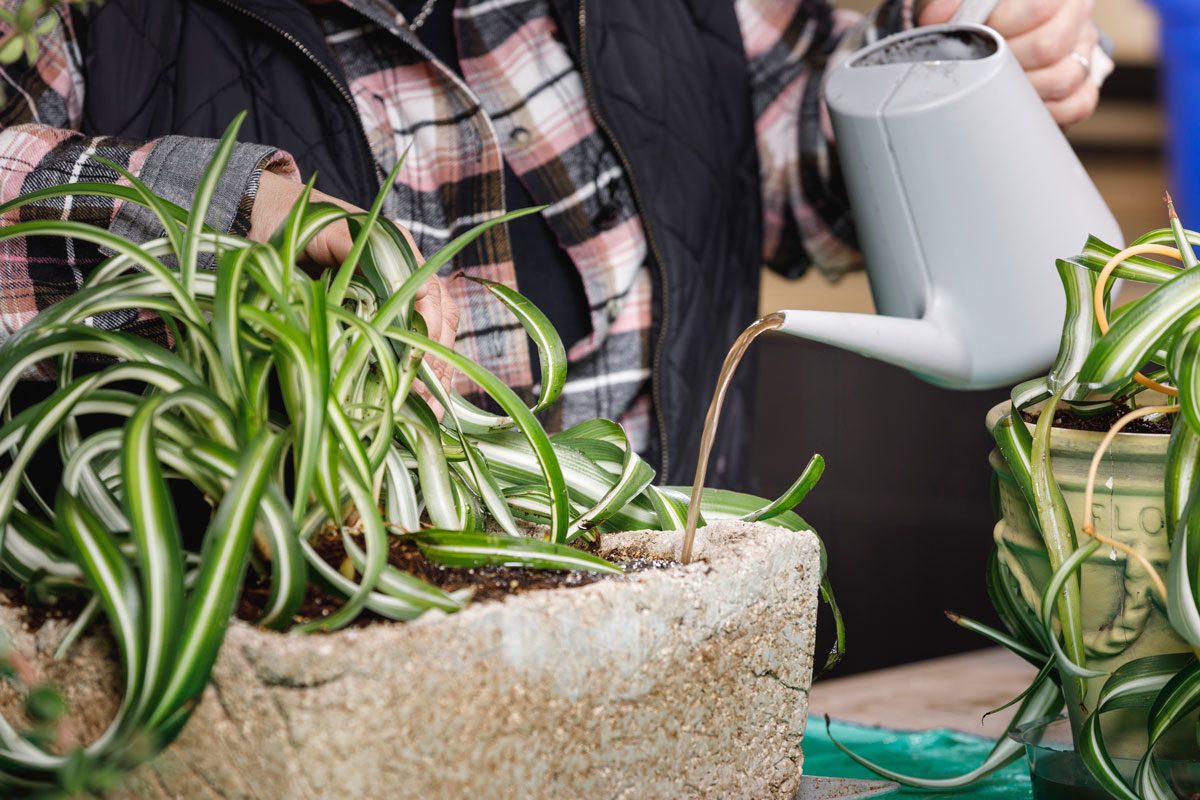
FAQ
How long will my compost last?
Be sure to use your compost tea within 24 hours before it starts to spoil. Store it in a refrigerator to help it last longer. As with all tea, it is best when freshly made.
How often should I water my plants with compost tea?
Alternate regular waterings with compost tea about every two to four weeks, and you will be amazed at the difference this way of giving your plants nutrients will make in their flourishing.
Can I overdo it with compost tea on my plants?
There is a delicate balance between healthy microbes that benefit your soil and unhealthy pathogens that can be harmful to your plants. By spreading out the compost tea waterings, with regular water, you are flushing out the soil and allowing it to keep the good and get rid of the bad. Soil has an incredible way of being its own filtration system for healthy plants. Too much of a good thing is never good.
